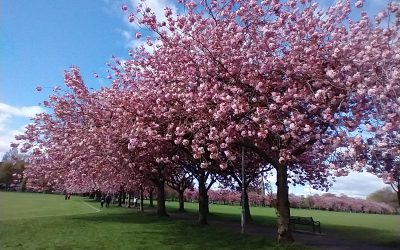I’ve been adjudicating a couple of prizes recently at music colleges. As usual these days, some of the most striking performances have been provided by musicians from China, Korea and Japan. I’m starting to get used to the excellence of their contributions, but from time to time I find myself just gazing at them and thinking how amazed Beethoven, or Schubert, or Mendelssohn would be if they could sit beside me and hear their compositions played by young musicians from China.
I wonder when their music was first played in the Far East, and by whom? I know very little about this subject, but I assume it’s quite a recent phenomenon. It already seems remarkable enough to me that young players from the other side of the world now think it’s normal to go and study in London. Even more remarkably, they can step confidently forward and play European music of several hundred years ago as if they had been speaking its language all their life.




Beethoven and Schubert perhaps would be surprised by this, but I doubt Mendelssohn would be. He was very well-read in Asian philosophy, particularly Hindu and Sufist philosophy, and was close friends with Friedrich Rosen, first Professor of Sanskrit at University College London (appointed at age 22). In his letters, Mendelssohn recommend to his brother Paul a book of Eastern mystic aphorisms by another orientalist Friedrich Ruckert, saying this book provided “delight beyond measure”. And his famous setting of Heine’s poem “Auf Flügeln des Gesanges” (On Wings of Song) expresses a deep interest in orientalist thought: the words of that song are quite remarkable for their cosmopolitan, even surrealist, flavour.
Heavens, what an expert comment! Very interesting. Thanks, Peter.
Age 22? Now I feel hopelessly inadequate. I haven’t been appointed Professor of Sanskrit anywhere!
Well, Froggy, the age at which people studied at university was also different in Mendelssohn’s day, and life expectancy was much shorter, so I suppose being appointed a professor at age 22 wouldn’t have seemed so startling in the 19th century as it does to us. And of course professors were all men ….
Well, I’m a frog.
I fear it might be intimidating for students of Sanskrit to discover that their professor was a twenty-two-year-old frog.
Most of my university professors were toads
Were they? Most of mine were old deers.
Dear Susan,
There is an article about this entitled “East Meets West in the Concert Hall: Asians and Classical Music in the Century of Imperialism, Post-Colonialism, and Multiculturalism” by Mina Yang. It is available on JSTOR – perhaps my colleague Froggy would grant you JSTOR access so that you can view it, if it is unfamiliar to you. It is very interesting, and informative, addressing the issue of Postcolonial theory’s relatively late appearance in music studies due to a lingering preoccupation with Romantic conceptions of the autonomous transcendental aesthetic of art music, as well as music’s ‘abstract language’.
But I digress. My fellows are more cosmopolitan, having found a delicate balance between parroting and rabbiting on.
Musicologist Professor F. Rog and wannabe Professor of Sanskrit ‘hang out’ together
http://www.deaflion.com/wp-content/uploads/2009/12/Two-Frogs.jpg
Goodness, you do get a nice class of comment on this lily pad!